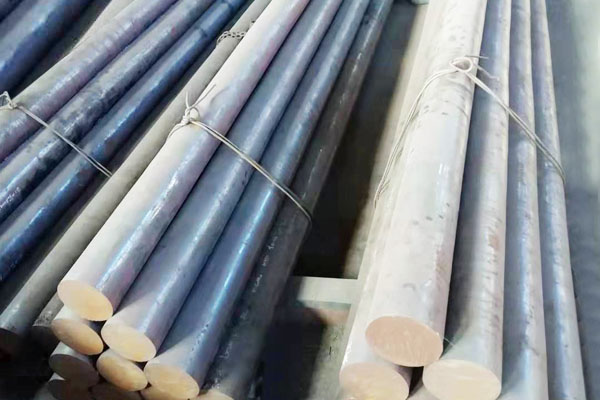

构造对热处分后的构造和性能的影响主要阐扬在如下几方面
(1)锻件厂家不行改善的构造缺陷:奥氏体和铁素体耐热不锈钢、高温合金、铝合金、镁合金等在加热和冷却过程中,没有同素异构转变的质料,以及少许铜合金和钛合金等,在铸造过程中发生的构造缺陷用热处分的办法不行改善。
(2)能够得到改善的构造缺陷:在一般过热的布局钢锻件中的粗晶和魏氏构造,过共析钢和轴承钢由于冷却不当惹起的轻细的网状碳化物等在锻后热处分时,锻件热处分后仍可获取写意的构造和性能。
(3) 正常的热处分较难消弭的构造缺陷:比方低倍粗晶、9Cr18不锈钢、H13的孪晶碳化物等需用高温正火、反复正火、低温剖释、高温分散退火等错失才气得到改善。
(4)用一般热处分工艺不行消弭的构造缺陷:紧张的石状断口和棱面断口、过烧、不锈钢中的铁素体带、莱氏体合金工具钢中的碳化物网和带等使热处分后的锻件性能下降,乃至分歧格。
(5)在热处分时将会进一步发展的构造缺陷:比方,合金布局钢锻件中的粗晶构造,要是锻后热处分时未得到改善,在碳、氮共渗和淬火后常惹起马氏体针粗大和性能分歧格;高速钢中的粗大带状碳化物,淬火经常惹起开裂。
(6) 要是加热不当,比方加热温度过高和加热时间过长,将会惹起脱碳、过热、过烧等缺陷。
(7)锻后冷却过程中,要是工艺不当可能惹起冷却裂纹、白点等,在热处分过程中开裂。
自由锻件厂家哪家好,就找唐山盛通锻造有限公司。
The influence of the structure on the structure and performance after heat treatment is mainly explained in the following aspects
(1) Structural defects that cannot be improved by forgings manufacturers: austenitic and ferritic heat-resistant stainless steels, high-temperature alloys, aluminum alloys, magnesium alloys, etc., during heating and cooling, there is no homogeneous transformation of the material, and a little copper Alloys, titanium alloys, etc., the structural defects occurring during the casting process are not improved by heat treatment.
(2) Improved structural defects: coarse grain and Wei's structure in general overheated layout steel forgings, superfine eutectoid steel and bearing steel due to improper cooling caused by light and fine mesh carbides, etc. At the time of disposition, the forged piece can still obtain freehand construction and performance after heat treatment.
(3) The normal heat treatment is difficult to eliminate structural defects: for example, low-magnification coarse crystal, 9Cr18 stainless steel, H13 twinned carbide, etc., need to use high-temperature normalizing, repeated normalizing, low-temperature interpretation, high-temperature dispersion annealing, etc. Improved.
(4) Structural defects that cannot be eliminated by the general heat treatment process: tight stone fractures and facet fractures, over-burning, ferrite belts in stainless steel, carbide nets and belts in Leysite alloy tool steels, etc. The performance of forgings after heat treatment is degraded, and even divergent.
(5) Structural defects that will be further developed in the case of heat treatment: For example, the coarse-grained structure in the alloy layout steel forgings is not improved when hot after forging, and often causes Markov after carbon, nitrogen co-infiltration and quenching. Large body needles and performance differences; coarse banded carbides in high-speed steel, quenching often cause cracking.
(6) If the heating is improper, for example, the heating temperature is too high and the heating time is too long, it will cause defects such as decarburization, overheating and overburning.
(7) During the post-forging cooling process, if the process is improper, it may cause cooling cracks, white spots, etc., and crack during the heat treatment.
